What is Google Cloud and what is it used for?
If you want to start with the Google Cloud Platform read our blog to understand the concept, services, and benefits of Google Cloud Platform.
Google Cloud Platform (GCP) is a comprehensive suite of cloud computing services provided by Google. It offers a range of tools and resources for building, deploying, and managing various applications and services in the cloud.
GCP is designed to empower businesses and developers with the flexibility, scalability, and reliability needed to run their workloads efficiently.
GCP encompasses a diverse array of services, including computing, storage, databases, machine learning, analytics, and networking. Google Compute Engine provides virtual machines for running applications, while Google Cloud Storage offers scalable and durable object storage.

GCP’s managed database services, such as Cloud SQL and Firestore, enable users to store and retrieve data seamlessly.
The platform also leverages Google’s expertise in machine learning with services like Google AI Platform, allowing users to develop and deploy machine learning models.
One of the standout features of GCP is its global network infrastructure, which enables users to deploy applications and services across Google’s vast network of data centers.
There are several companies that provide Google Cloud Development services. Adequate Infosoft is the leading software development company that provides services for various industries.
What are Google Cloud Platforms Services
Google Cloud Platform (GCP) offers a wide range of cloud computing services that cater to various business needs. Here are some of the key services provided by GCP:
Compute Services:
- Google Compute Engine: Provides virtual machines (VMs) for running applications on Google’s infrastructure.
- Google Kubernetes Engine: Offers managed Kubernetes clusters for orchestrating containerized applications.
- App Engine: Platform-as-a-Service (PaaS) offering that allows developers to build and deploy applications without managing the underlying infrastructure.
Storage Services:
- Google Cloud Storage: Scalable object storage with options for standard, nearline, coldline, and archival storage classes.
- Cloud SQL: Managed relational database service for MySQL, PostgreSQL, and SQL Server.
- Bigtable: A fully managed NoSQL database service for large analytical and operational workloads.
Networking Services:
- Virtual Private Cloud (VPC): Offers networking functionality for creating isolated network environments.
- Cloud CDN: Content Delivery Network service for delivering web content to users with low latency.
Big Data and Analytics Services:
- BigQuery: Fully managed, serverless data warehouse for analyzing large datasets using SQL-like queries.
- Dataproc: Managed Apache Spark and Apache Hadoop service for processing big data workloads.
- Dataflow: Fully managed stream and batch data processing service.
Machine Learning and AI Services:
- AI Platform: Allows developers and data scientists to build, deploy, and manage machine learning models.
- Vision AI, Video AI, and Natural Language AI: APIs for incorporating computer vision, video analysis, and natural language processing into applications.
Identity and Security Services:
- Identity and Access Management (IAM): Manages access control and permissions for GCP resources.
- Cloud Identity-Aware Proxy: Provides context-aware access to applications deployed on Google Cloud.
Management and Monitoring Services:
- Cloud Monitoring and Logging: Monitors the performance of applications and infrastructure and provides detailed logs.
- Cloud Trace and Cloud Debugger: Helps diagnose and debug applications in production.
Developer Tools:
- Cloud Build: Continuous integration and delivery platform for automating build, test, and deployment pipelines.
- Cloud Source Repositories: Version control service for managing code repositories.
IoT Services:
- Cloud IoT Core: Provides secure and scalable communication between IoT devices and the cloud.
Networking Services:
- Virtual Private Cloud (VPC): Offers networking functionality for creating isolated network environments.
- Cloud Load Balancing: Distributes incoming traffic across multiple instances or regions for improved availability and performance.
How businesses can use the Google Cloud Platform

How businesses can use the Google Cloud Platform? Businesses can leverage Google Cloud Platform (GCP) in a variety of ways to enhance their operations, innovate, and achieve their goals. Here are some common use cases:
-
Scalable Infrastructure and Applications:
GCP provides a scalable and reliable infrastructure for hosting applications, websites, and services. Businesses can use Google Compute Engine to deploy virtual machines and Kubernetes Engine to manage containerized applications, ensuring high availability and easy scaling as demand grows.
-
Data Storage and Analysis:
GCP’s storage and data analytics services enable businesses to store, process, and analyze large volumes of data. Google BigQuery allows for quick and cost-effective analysis of massive datasets, while Cloud Storage offers flexible and scalable storage solutions.
-
Machine Learning and AI:
Businesses can harness GCP’s machine learning and AI services to develop predictive models, automate tasks, and gain insights from data. Google’s AI Platform allows for the training and deployment of machine learning models, and APIs like Vision AI and Natural Language AI enable the integration of AI capabilities into applications.
-
IoT Solutions:
GCP’s IoT Core service enables businesses to securely connect and manage IoT devices, collect data, and create real-time monitoring and control systems for various industries like manufacturing, healthcare, and agriculture.
-
Media and Content Delivery:
Cloud-based media solutions like Cloud Storage, Cloud CDN, and Video AI enable businesses to efficiently store, manage, and deliver media content to users globally, enhancing user experiences.
-
Development and DevOps:
GCP offers tools for developers and IT teams to collaborate and streamline development workflows. Cloud Source Repositories, Cloud Build, and Kubernetes Engine facilitate continuous integration and delivery (CI/CD) and efficient management of containerized applications.
-
Data Backup and Disaster Recovery:
With services like Cloud Storage, businesses can ensure data redundancy, backup critical data, and establish disaster recovery solutions for enhanced data protection.
-
Real-time Analytics:
GCP’s data streaming and processing services, such as Pub/Sub and Dataflow, enable businesses to process and analyze data in real-time, allowing for rapid decision-making and insights generation.
-
Hybrid and Multi-cloud Deployments:
GCP offers solutions for businesses looking to implement hybrid or multi-cloud strategies. Tools like Anthos enable consistent deployment and management of applications across on-premises environments and multiple cloud providers.
-
Security and Compliance:
GCP provides features like Identity and Access Management (IAM) and encryption at rest and in transit to enhance data security. It also offers compliance certifications for industries with strict regulatory requirements.
Benefits of Google Cloud Platforms
Google Cloud Platform (GCP) offers a wide range of benefits to businesses and organizations looking to leverage cloud computing for their operations. Some key benefits include:
-
Scalability and Flexibility:
GCP provides the ability to scale resources up or down based on demand. Businesses can easily adjust their computing power, storage, and networking resources to match their needs, avoiding over-provisioning and optimizing costs.
-
Global Infrastructure and High Availability:
GCP operates on Google’s extensive network of data centers spread across the globe. This ensures low-latency access to resources and allows businesses to deploy applications in multiple regions for enhanced availability and disaster recovery.
-
Cost Efficiency:
GCP offers a pay-as-you-go pricing model, allowing businesses to only pay for the resources they use. This eliminates the need for large upfront investments in hardware and infrastructure, leading to cost savings and better budget management.
-
Innovation and Cutting-Edge Technology:
Google is renowned for its technological innovation, and GCP provides access to the latest advancements in cloud computing, machine learning, AI, and data analytics. Businesses can leverage these tools to drive innovation, develop new products, and enhance customer experiences.
-
Managed Services:
GCP offers a variety of managed services, such as managed databases, serverless computing, and AI services. This offloads the burden of managing infrastructure and allows businesses to focus on their core competencies.
The post What is Google Cloud Platform & what it is used for| Benefits and features appeared first on .
Tags:
- Google Cloud Platform
- Software Development Company
- benefits of gcp
- gcp services
- google cloud development services
- google cloud services
- how gcp benefits business
- what is google cloud
- what is google cloud platform used for

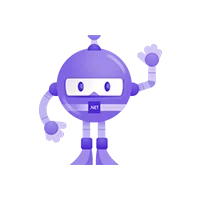 .NET MAUI Development
.NET MAUI Development
 Xamarin Application Development
Xamarin Application Development
 React Native App Development
React Native App Development
 iOS Application Development
iOS Application Development
 Android Application Development
Android Application Development
 Android Wear App Development
Android Wear App Development
 Ionic Development
Ionic Development
 iBeacon Application Development
iBeacon Application Development
 Universal Windows Platform (UWP)
Universal Windows Platform (UWP)
 Kotlin Application Development
Kotlin Application Development
 Swift Application Development
Swift Application Development
 Flutter Application Development
Flutter Application Development
 PWA Application Development
PWA Application Development
 .NET Application Development
.NET Application Development
 .NET Nuke Development
.NET Nuke Development
 Microsoft Dynamics CRM
Microsoft Dynamics CRM
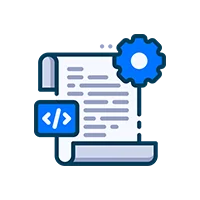 Microsoft Small Business Solution
Microsoft Small Business Solution
 VB .NET Development
VB .NET Development
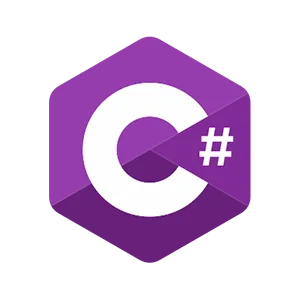 C# Development
C# Development
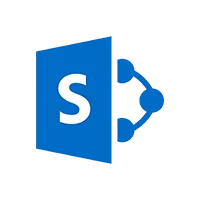 Sharepoint Migration
Sharepoint Migration
 Sharepoint Development
Sharepoint Development
 ASP.NET Core Development
ASP.NET Core Development
 ASP.NET Development
ASP.NET Development
 ASP.NET MVC Development
ASP.NET MVC Development
 Kentico CMS
Kentico CMS
 Umbraco CMS
Umbraco CMS
 AJAX Development
AJAX Development
 Agile Development
Agile Development
 Microsoft Bot
Microsoft Bot
 Microsoft Blazor
Microsoft Blazor
 Microsoft Azure Cognitive
Microsoft Azure Cognitive

 Mean Stack Development
Mean Stack Development
 Vue JS Development
Vue JS Development
 Javascript Development
Javascript Development
 Angular JS Development
Angular JS Development
 Next JS development
Next JS development
 Java Development
Java Development
 Python Development
Python Development
 Django Development
Django Development
 Cherrypy Development
Cherrypy Development
 NodeJS Development
NodeJS Development
 Laravel Development
Laravel Development
 CodeIgniter Development
CodeIgniter Development
 Zend Development
Zend Development
 Ruby on Rails Development
Ruby on Rails Development
 CakePHP Development
CakePHP Development
 PHP Website Development
PHP Website Development
 Symfony Development
Symfony Development
 Drupal Development
Drupal Development
 Joomla Development
Joomla Development
 Wordpress Development
Wordpress Development
 Offshore Software Development
Offshore Software Development
 Custom Application Development
Custom Application Development
 Full Stack Development
Full Stack Development
 AI & Machine Learning
AI & Machine Learning
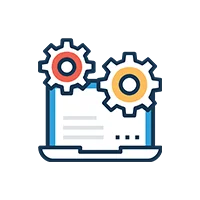 Custom CRM Solutions
Custom CRM Solutions
 Flask Software Development
Flask Software Development
 Electron JS Development
Electron JS Development
 ChatGPT Development
ChatGPT Development
 Magento Development
Magento Development
 Magento 2.0 Development
Magento 2.0 Development
 Magento Enterprise
Magento Enterprise
 Shopping Cart Development
Shopping Cart Development
 Prestashop Development
Prestashop Development
 Shopify Development
Shopify Development
 Open Cart Development
Open Cart Development
 WooCommerce Development
WooCommerce Development
 BigCommerce Development
BigCommerce Development
 NopCommerce Development
NopCommerce Development
 Virto Commerce Development
Virto Commerce Development
 AspDotNetStorefront Development
AspDotNetStorefront Development
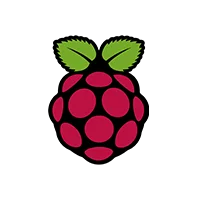 RaspBerry Pi
RaspBerry Pi
 Firmware Software Development
Firmware Software Development
 ESP 32 Software Development
ESP 32 Software Development
 Embedded Development
Embedded Development
 Internet of Things
Internet of Things
 Nordic Development
Nordic Development
 HTML 5
HTML 5
 UI/UX Design
UI/UX Design
 Graphic Design
Graphic Design
 Adobe Photoshop
Adobe Photoshop
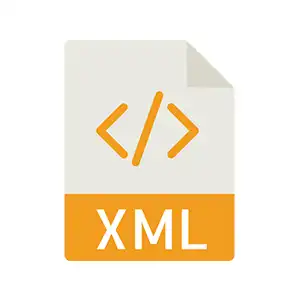 XML Application Development
XML Application Development
 Cloud Computing Solutions
Cloud Computing Solutions
 Azure Cloud App Development
Azure Cloud App Development
 AWS Development
AWS Development
 Google Cloud Development
Google Cloud Development
 SQL Programming Development
SQL Programming Development
 MySQL Development
MySQL Development
 MongoDB Development
MongoDB Development
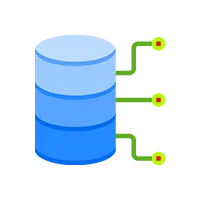 Big Data
Big Data
 Robotic Process Automation
Robotic Process Automation
 Social Media Marketing
Social Media Marketing
 Search Engine Optimization
Search Engine Optimization
 QA Testing
QA Testing
 Software Testing
Software Testing
 Software Security
Software Security
 Maintenance And Support
Maintenance And Support
 I.T. Consulting Services
I.T. Consulting Services
 Business Intelligence
Business Intelligence
 YII Development
YII Development
 Data Analysis
Data Analysis
 Alexa Skills Development
Alexa Skills Development
 On Demand App for Mobile repairing services
On Demand App for Mobile repairing services
 On Demand App for Car Service Booking
On Demand App for Car Service Booking
 On Demand App for Cleaning Services
On Demand App for Cleaning Services
 On Demand App for Pharmacy
On Demand App for Pharmacy
 On Demand Dedicated Developers
On Demand Dedicated Developers







Leave a Reply